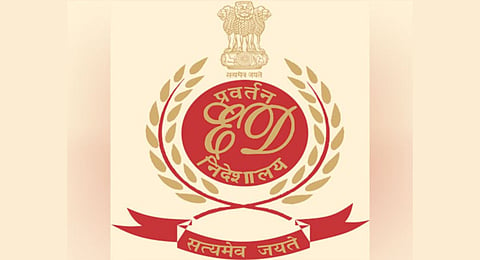

CHENNAI: The Enforcement Directorate on Wednesday submitted in the Madras High Court that it has not been vested with the powers to seal premises that are locked at the time it goes for conducting a search in connection with a money laundering investigation. However, it added that it is empowered under section 17 of the Prevention of Money Laundering Act (PMLA) to break open the lock and proceed with the search.
The agency also informed the court that it can enter and search the premises of anyone merely based on suspicions even if they are not named in the FIRs of the offences based on which the agency investigates a money laundering case.
Additional Solicitor General SV Raju, representing the ED, made the submissions before a division bench comprising justices MS Ramesh and V Lakshminarayanan during the hearing of the petitions filed by film producer Akash Bhaskaran and businessman Vikram Ravindran. They have challenged the ED's recent raids and sealing of two of of their offices and residential premises in connection with the alleged scam to the tune of Rs 1,000 crore in the state-run Tasmac.
“We (ED) don’t have the powers to seal the premises,” the ASG admitted, after persistent queries from the bench on whether the agency is empowered to seal premises as per PMLA.
However, he added that the agency has got the powers to break open the lock of premises that are locked during the search. He said the agency did not aggravate the situation by doing so, but resorted to a “milder action” and pasted the notices on the doors of the premises, preventing the petitioners from entering them.
He added that the agency is withdrawing the notices pasted on the two premises and returning devices of the petitioners seized from other places.
The ASG informed the court that the 41 FIRs registered by Tamil Nadu’s Directorate of Vigilance and Anti-Corruption formed the basis for the “reasons to believe” (as defined in section 17 of the PMLA) that money laundering has been committed.
However, replying to a pointed question of the bench, he said the petitioners were not named in the FIR, but the agency can enter into any premises on mere suspicion.
Initially, when the petitions were taken up for hearing on Wednesday, the bench asked for the records as directed by it the day before.
Special public prosecutor N Ramesh, appearing for the ED, sought a short passover of the case as the ASG would appear through videoconferencing from Delhi.
When the matter was taken up again, while the ASG wanted to make a submission, the bench stuck to its position and emphasised that the agency should produce the records based on which the search proceedings were initiated. The case was again passed over and later a few documents and a note were produced.
Referring to the note submitted to the court and the submissions made by the ASG, the bench said, “There is divorce between the note and the submissions.”
Senior counsels Vijay Narayan, V Giri and Abudu Kumar Rajaratnam appeared for the petitioners.
The court reserved the orders on the petitions filed by the two seeking interim orders to unseal the premises while adjourning the hearing of the main petitions by four weeks as requested by the ED for filing the counter-affidavits.